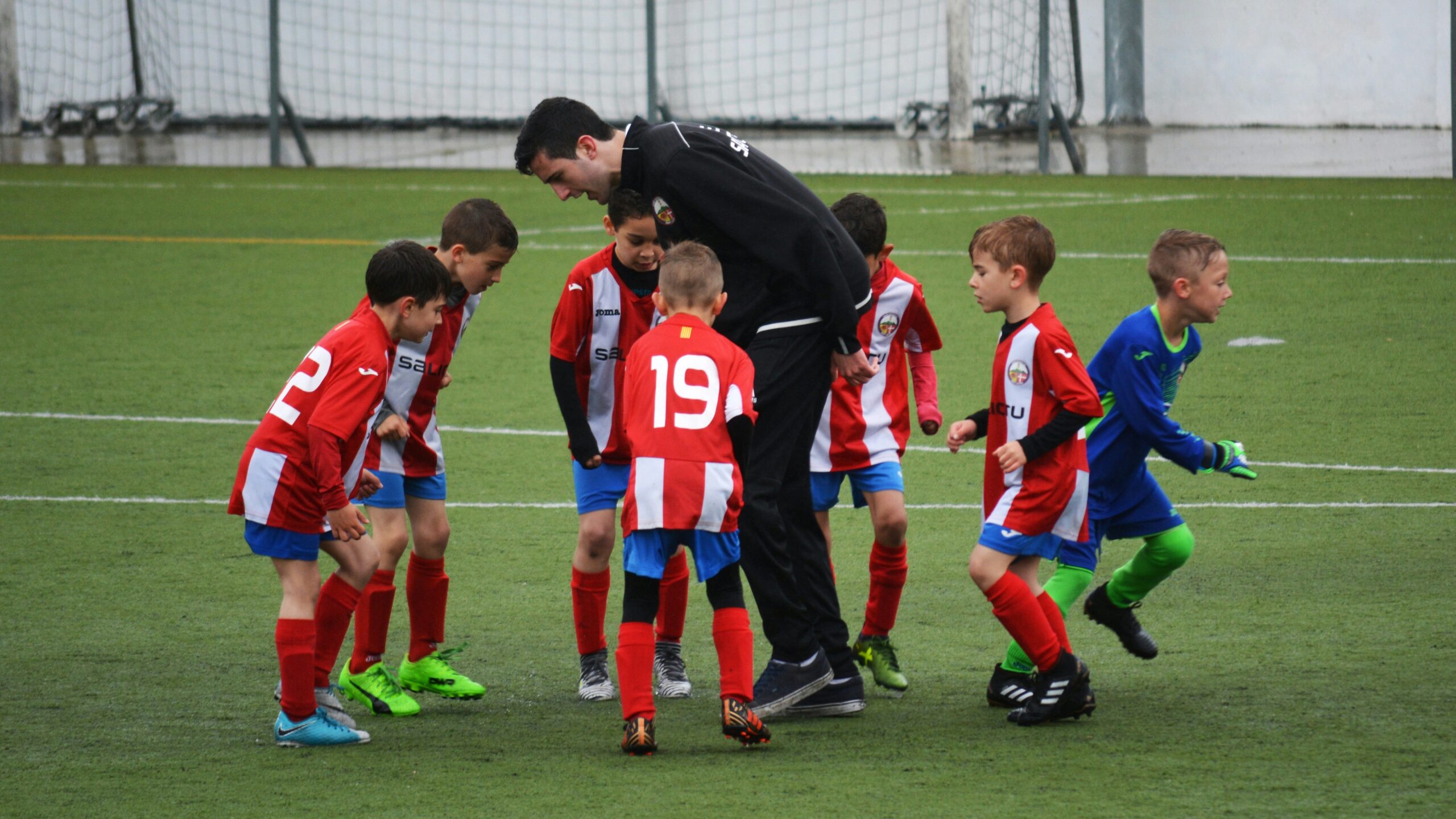Youth sports offer so many benefits to little leaguers; they play a crucial role in shaping young minds and bodies. There are so many reason why kids should play sports! From learning teamwork and discipline to developing resilience and confidence-not to mention the academic benefits youth sports can result in, sports provide invaluable life lessons that extend far beyond the playing field. As parents and caregivers, and the ones choosing what sports are right for our kids, it’s important to support children in their sports journey in a way that nurtures growth, fosters enjoyment, and builds lasting memories. In this article, we’ll explore how youth sports contribute to child development and offer practical ways for parents to support their young athletes without adding unnecessary pressure.

First, A Personal Story
Before I begin, I’d like to share a personal story that ties into the heart of today’s message about being a supportive parent in youth sports. Here on the blog, I’ve talked a lot about the influence of my dad on my sports journey. Growing up, I spent countless hours with him on the baseball diamond, basketball court, and football field. After he passed away in 2017, I cherished those memories in a way that felt even more precious. However, it wasn’t always smooth sailing.
My dad was a star on the baseball field in high school. He lived and breathed the game, and when he had me and my brothers, he had no doubt in his mind that we would follow in his footsteps. Throughout little league, my dad was my coach—teaching me the fundamentals, pushing me to get better. But, while he always had the best intentions, I often felt an overwhelming pressure to perform for him. If I struck out or dropped a fly ball, I thought I had let him down in the worst way. His passion for the game, combined with his high expectations, made me fear disappointing him more than anything.
That pressure, while driven by love, led me to self-doubt. I never played to my true potential because I was too focused on avoiding failure rather than enjoying the game. I remember times when anxiety paralyzed me—I’d feel sick to my stomach in the dugout, convincing myself not to even try before stepping up to the plate. When I finally gathered the courage to tell my dad, “I don’t like baseball and I don’t want to play anymore,” he was understandably sad and disappointed. He tried everything he could to rekindle my passion for the game. But eventually, he relented, acknowledging that perhaps baseball wasn’t the right fit for me. He suggested I try other sports, which led me to swimming—a sport I fell in love with and continue to enjoy to this day.
This experience taught me that being a supportive parent in youth sports is about understanding that each child is unique. While my dad’s passion for baseball was clear, it wasn’t until he stepped back and let me pursue something that felt right for me that I truly found joy in sports. This is a valuable lesson for all of us as parents: it’s not about pushing our children to fulfill our dreams, but rather supporting them as they explore their own passions.

Why Are Youth Sports Important for Child Development?
Building Physical and Mental Strength
Youth sports are more than just games; they shape young minds and bodies. Kids develop physical fitness, but they also gain resilience, discipline, and teamwork skills that stay with them for life. Through sports, they learn how to push their limits and cope with both victories and setbacks, building confidence in themselves and their abilities.
Learning to Overcome Challenges
Sports teach kids to handle losses, support teammates, and persevere through tough training sessions. These lessons build character and mental toughness. In facing setbacks, they also discover the power of growth and the importance of keeping a positive mindset despite adversity.

The Power of Teamwork
Children learn the importance of working together, valuing different roles, and trusting teammates. These experiences create lasting friendships and social skills. Through collaboration, they understand that success is often a collective effort, fostering empathy and respect for others.
Instilling Discipline and Time Management
Regular practice and game strategies teach kids how to manage their time effectively, balance responsibilities, and understand the consequences of slacking off. The structure of youth sports helps kids build a sense of accountability that extends beyond the field into their schoolwork and home life.
The True Value of Sports Experiences
While trophies are nice, the biggest wins come from personal growth, friendships, and life lessons. Every play helps shape them into strong, resilient individuals. Through sports, children learn that success isn’t just about the score, but about how they handle challenges, relationships, and setbacks along the way.
How Can Parents Support Their Young Athletes Without Pressure?
Encouraging Without Overwhelming
Youth sports parents should focus on offering genuine support rather than pushing too hard. Kids thrive when they know effort matters more than just winning. This encouragement helps build their self-esteem, reinforcing that their worth isn’t tied to the outcome of a game.
Avoiding Overbearing Behavior
Excessive directions during games or arguing with coaches can take the joy out of sports. It’s essential to let kids develop autonomy in their journey. Allowing them to make mistakes and learn from them helps build resilience and independence. We want to avoid putting our kids in the pressure cooker of sports and keep them free from unnecessary anxiety and pressure.

Fostering a Healthy Perspective on Success
Children should associate sports with enjoyment and learning, not just performance. Showing appreciation for their effort reduces unnecessary stress. Emphasizing personal growth rather than trophies helps them understand the bigger picture of their sports journey.
Helping Kids Develop Their Own Identity
By recognizing their persistence and creativity, parents help children grow as athletes and individuals. The goal is to nurture a love for the game. When children feel supported for who they are rather than just what they accomplish, they develop a healthier relationship with sports.
What Are the Signs of Over-Involvement in Youth Sports?
Coaching From the Sidelines
Shouting instructions during games can confuse kids and interfere with the coach’s strategy. I’m so guilty of this as a parent, but I’m learning and growing just like we all are. It’s important to let them focus and follow their coach’s guidance. Over-involvement can create a distracting atmosphere that affects both the child’s experience and the team dynamic.
Arguing With Referees
Disputing calls may seem like advocating for your child, but it can teach them to disrespect authority and struggle with accepting outcomes. When parents model respect for officials, children learn to handle disagreements with grace and maturity. It’s important that you can trust that your kid’s coach will also advocate for your kid too. Official’s are doing their best, but we have to remember that they are human and make mistakes and miss calls from time to time.
Living Through Your Child’s Achievements
Parents should be mindful not to push their own sports dreams onto their kids. Young athletes need space to pursue their own goals and passions. When parents focus on their child’s individual growth rather than comparing them to others, it helps avoid feelings of pressure or resentment. When my dad supported my decision to pursue competitive swimming instead of baseball and showed up to every single meet, it meant the world to me. His presence pushed me to swim harder and gave me the drive to keep going. We can do that for our kids too.

The Hidden Pressure of Expectations
When children feel they must meet high expectations to gain approval, sports can become stressful rather than fun. This is a leading cause of sports dropout. Instead, children should feel supported in their efforts regardless of outcomes, allowing them to enjoy sports without fear of disappointing anyone. As a parent, it’s your job to foster an environment of open and safe communication.
Finding the Right Balance
By stepping back and allowing kids to find their own motivation, parents can create a more positive and fulfilling sports experience. Encouraging them to set their own goals helps foster a sense of ownership, reducing pressure while boosting their intrinsic motivation.
How Can Parents Positively Impact Their Child’s Sports Journey?
Encouragement Matters More Than Results
Recognizing effort—win or lose—boosts confidence and enthusiasm. A simple “great job” goes a long way in keeping kids motivated. Positive reinforcement strengthens their passion for the game, helping them appreciate the journey rather than just the outcome. Anytime my son runs over to me after one of his games, he always ask If I saw something that he did during the game. It’s what he’s most excited about and what he wants to be recognized for. This is my opportunity to celebrate with him, encourage him, and validate his hard work.
Letting Kids Take Ownership
Allowing children to navigate their sports journey fosters independence, self-motivation, and decision-making skills. When kids feel empowered to set goals and work toward them, they build confidence in their abilities and a sense of pride in their achievements. Recently my son found out that one of his teammates has set some specific basketball practice goals. My son asked me if he could set goals for himself and if he could spend extra time outside shooting hoops. I was so excited that he took ownership and set some goals for himself and told him, “of course!”.
Teaching Grace in Wins and Losses
By celebrating effort as much as success, parents help kids develop sportsmanship and a growth mindset. Teaching them to handle both victory and defeat with humility shapes their character and builds resilience in the face of life’s ups and downs.
Trusting the Coaches
Coaches are there to guide and develop young athletes. Letting them do their job strengthens the player-coach relationship and improves learning. Trusting the coach’s experience helps build a team dynamic and gives kids the opportunity to develop under professional guidance. As a parent, you can do your due diligence to get to know the coach and find the right team for your kid.

Creating a Lasting Positive Influence
A balanced and supportive approach helps children enjoy sports while growing in confidence, resilience, and love for the game. When parents actively foster a supportive environment, they create lasting memories and positive habits that extend well beyond their child’s athletic journey.
Final Thoughts
Youth sports are a powerful tool for fostering physical, mental, and emotional growth in children. Through teamwork, discipline, and resilience, kids develop skills that will serve them well in all areas of life. As parents, it’s vital to strike the right balance between encouragement and pressure, ensuring that children can thrive in a positive, supportive environment. By focusing on effort, growth, and fun rather than just outcomes, we help kids build a lasting love for the game while also nurturing their overall development as individuals.

